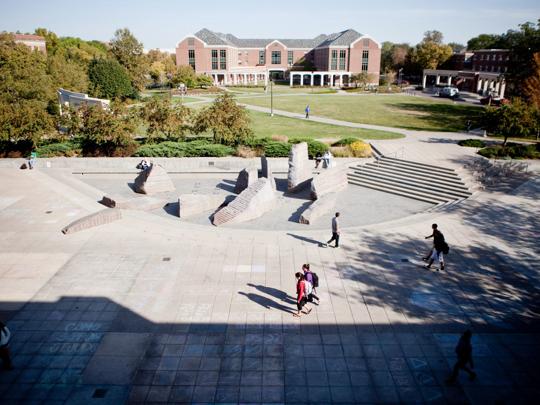LINCOLN — A consultant Friday placed a dollar figure on the University of Nebraska system’s value to the state: $4.5 billion.
The consultant, Paul Umbach of Pennsylvania-based Tripp Umbach, told the NU Board of Regents that it’s a story the university should “boldly” tell Nebraska.
It was probably no coincidence that the report went to the Board of Regents as the Nebraska Legislature considers the university’s state appropriations. NU and public higher education as a whole have endured three state budget cuts in two years.
NU President Hank Bounds has stressed in his 3½ years as president of the NU system that the university is more than an educational institution.
NU, Bounds and others say, is a vital element in Nebraska’s workforce development, economy and job creation.
Bounds announced early this week that he will leave the university in August to return home to the South with his family.
Umbach’s report came with assessments of NU’s annual value to each of the 49 legislative districts. Umbach said to the regents that he had been asked if the report is a tool that could be used to lobby state senators. “The answer is, of course it is,” Umbach said.
Not every report to the board was so rosy.
The regents heard from deans at the University of Nebraska-Lincoln, the University of Nebraska at Kearney and the University of Nebraska at Omaha about workforce shortages in the state.
The deans said the state has a severe shortage of workers in engineering, information technology and other technical areas. UNL Engineering Dean Lance Perez said his university intends to increase enrollment substantially in engineering over the next eight years.
Perez said the good jobs of the future are in science, technology, engineering and math. The university and state must respond to that, he said. “If we don’t get ahead of this, then those jobs are just gonna go somewhere else.”
Tim Burkink, dean of UNK’s College of Business and Technology, said there are more than 2,025 openings now in the state in cybersecurity alone. “It’s enormous,” Burkink said of the demand.
And Hesham Ali, dean of UNO’s College of Information Science and Technology, said the state struggles to attract and retain such workers because salaries are higher elsewhere. “I think we are having a hard time keeping everyone because they (those workers) are very attractive” to the nation’s marketplace, he said.
The NU system includes campuses in Omaha, Lincoln, Kearney and Curtis and programs and satellite campuses throughout the state.
Umbach said he has conducted economic impact studies for hundreds of entities over the past 30 years. His consulting company received $60,000 for its 2018 NU report.
Umbach said in an interview Thursday that the $4.5 billion is derived through a specific model to which most firms in his field adhere.
He said that years ago, some organizations expressed disappointment that their economic impact wasn’t greater than he described. He said he had to tell them that his company produces the numbers according to the model, called IMPLAN, and not according to leaders’ hopes.
If one company found a much greater economic impact for a university than other companies, those in the industry would know it, he said, and its credibility would be questioned.
The report to the regents included some rallying text and booster lines, such as, “With a strong University of Nebraska, Nebraska can be even more successful,” and, “NU is successful in leveraging the resources invested in it to do good work for Nebraskans.”
Umbach said one of every seven Nebraskans older than 20 is an NU alum; 70 percent of Nebraska health professionals were trained at the NU Medical Center; and NU’s value increased 15 percent from $3.9 billion in 2015.
He said that’s information that NU should maximize.
















